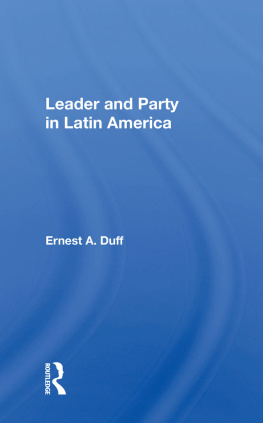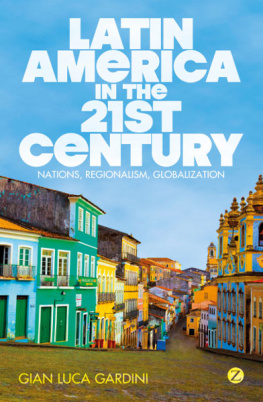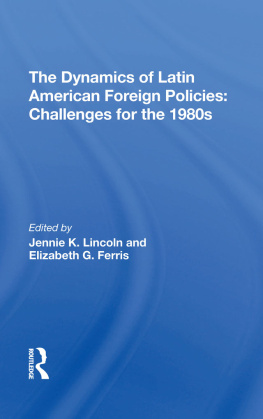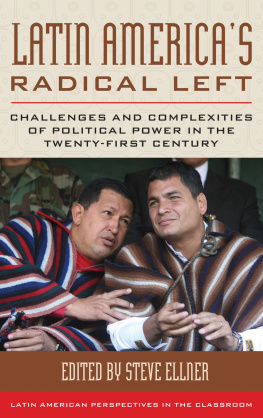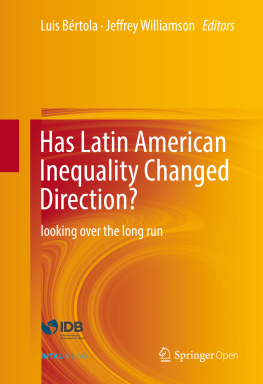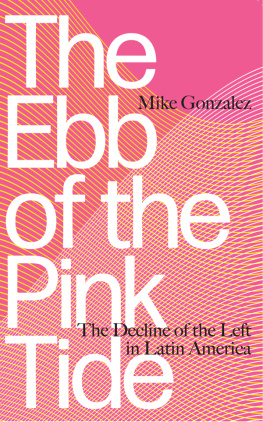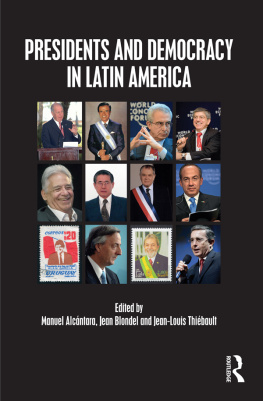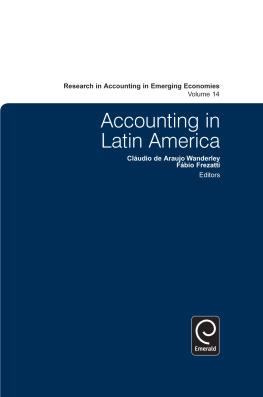As was of course the case in previous yearbooks, coherency of description of the kaleidoscope of elections in LA (Latin America) is aided by a system of subdivisions. Once again, that which is used here is CA (Central America), MERCOSUR, the Andean Nations, and four of the Caribbean nations to include Mexico. It remains appropriate to preface the discussion with a definition of the Left.
In what follow the Left will be taken to mean the political Left. The lexicon which has evolved began with Left and Right, progressed through Center to right center and left center, the ultimate stage in this dubious progression perhaps reached with center center. Since there is no real definition of these terms, they can and have been used to confuse and disguise. Here only Left will be used, Right entering only briefly as a counterpoint.
In the French National Assembly, the States General of 1789, the privileged classes,
In actuality, ML, Fascism, and Nazism are all appropriately lumped together into the Left. In LA (Latin America) the influence of these three Left ideologies have been strong in certain nations, relevant examples of this having been encountered in YRBK97*(Latin American Political Yearbook 1997, Transaction Publishers, 1998. ISBN: 1-56000-350-2, YRBK98 mutatis mutandi).
The Left can therefore be taken as the collectivist doctrine having little use for individual liberties and administered at the whim of bureaucrats. The military caudillos who arose in the 1970s in reaction to the lawlessness of the Left generally constituted special reactionary cases which need hardly be assigned positions in the political spectrum.
COSTA RICA
THE COSTA RICAN GENERAL ELECTIONS OF 1 FEBRUARY 1998 (WKLY 5.5, 5 FEBRUARY 1998)
The Costa Rican (CR) general elections were held on 1 February 1998 in that Central American (CA) nation. The last such elections were held on 6 February 1994. In those elections Jos Mara Figueres Olsen of the National Liberation Party (PLN-Social Democrat) won the presidency with 49.7 percent of the vote, his closest rival Miguel Angel Rodrguez Echeverra of the Social Christian Unity Party (PUSC) with 47.5 percent. In the unicameral national legislature the PLN won 28 of the 57 seats, the PUSC 25 and the Democratic Force Party (PFD) 2.
Parties in the Presidential Elections
In the last three elections (1986, 1990, 1994) about 18 percent of the registered voters have not cast ballots, the high being 35 percent in 1958.
The 1998 presidential ticket included the presidential and two vice presidential candidates, 13 parties fielding such tickets. As will be seen, this was basically a two-party race, but six of the other parties will be remarked here. With all voting places canvassed (numbers in parentheses are vote totals) the six parties are: PUSC (650,399), PLN (616,600), PFD (41,922), National Integration Party (PIN) (20,266), Costa Rican Renovation Party (PRC) (19,103), Democrat Party (PD) (13,599), Libertarian Movement Party (PML) (5849). A brief description of each of the six also-ran parties follows, these taken from the platitudinous self descriptions of the parties which frequently tell the careful reader more than the party intended.
PLN
This party was formed about 1944 by a generally misunderstood Jos (Pepe) Figueres [1906-1990] who came to power four years later largely due to the Caribbean Legion. He has been discussed briefly in 1YRBK97. The PLN won the presidency in 1953, 1962, 1970, 1977, 1982, 1986 and, under Figueres son, in 1994.
Five principles which govern the new form of political action [are] Honesty (decency)...We will arrive in the Government to serve the Country without arrogating to ourselves privileges of any kind...Truth...The truth is the primary source of our discourse and our behavior...Justice...A society which is not just is damaging, dehumanizing and egotistical. Justice for all is our political expression in order [to describe] endowing all the people with access to the material, intellectual and spiritual goods which the society produces...Liberty...is the basis of a society with participative democracy...Fairness (equity)...Our social democrat conception of development considers all sectors of Costa Rican society in an equitable, just and fraternal manner...
The party is proposing twelve Political Propositions which may be summarized as follows: 1. We will propose new mechanisms to regulate political, economic and social relations in Costa Rican society and its institutions... No specifics are given. 2. We will impel a great tax reform according to which each citizen pays taxes according to his income and economic capacity... 3. We will promote a participative democracy...4. We will promote the increase of production and savings and improve the methods of distribution of wealth, the only way to reduce poverty, recover fraternity and generate employment... In short, anti-neoliberalism. From this point the platform promises to reform education (No.5), develop Culture, Sport and Recreation (No.6), regulate and promote national development (No.6), adjust the state to the new necessities (No.7), guarantee the environment and biodiversity (No.8), watch over citizen security (No.9), reinforce health and social security systems (No. 10), guarantee future generations and [a] better country (no. 11) and rescue gender equity (No. 12).
PFD
The country is in bad shape, navigating without a course, in the hands of a pact between two worn out parties, the PLN and the PUSC incapable of raising national production...CR needs a change...FD, as a young political party...wishes a prosperous, just and democratic CR [and] invites all CRs to rise up against the bad administration, corruption and incapacity of the exhausted parties... The method which the PFD is suggesting to accomplish this is an anti-neoliberal, statist one similar to that of the PLN above.
The stated solutions are divided into five categories, (I) we will confront the high cost of living, (II) we will raise national production and generate employment, (III) we will battle corruption, (IV) we will give a renovating impetus to democracy and (V) we will strengthen State solidarity in order to foment sustainable development. Only anecdotal illustration is possible.
In category I.2 the weight of indirect, especially sales, taxes will be reduced, in 1.3, government regulation of basic services will be defended, in 1.4 speculation in rents will be fought, as in 1.5 will privatization of social services such as health, education and social security. In category II FD will promise to foment a productive economy which will generate development, insure creation of employment and generate a just distribution of wealth. Trans national enterprises beware (II.6) while agriculture is to be subsidized (II.3), the strategic function of the State and public enterprise in the development of national production will be defended and stimulated (II.8) while sustainable development and environmental preservation will be sponsored (11.12).


